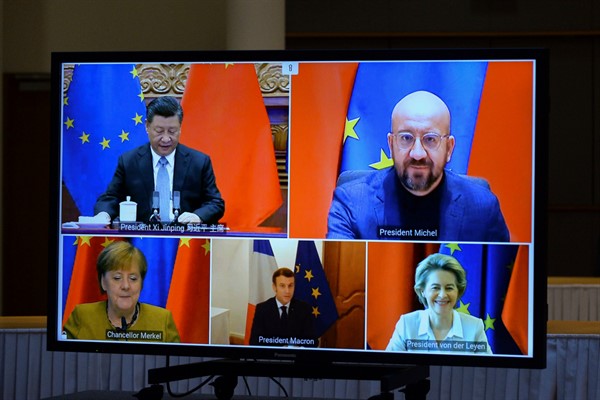If “European strategic autonomy” were a hashtag, it would be trending. But it’s a phrase that has as many different meanings as there are people using it. At the most basic level, it refers to Europe’s ability to defend and advance its interests in a global arena increasingly characterized by strategic competition among great powers. How and in what areas it should do so, though, and to what ends, are the subject of a high-stakes debate still taking shape.
The recently concluded investment agreement between the European Union and China highlights how the concept of European strategic autonomy has moved beyond the security realm from which it emerged. This broader approach applies a geopolitical lens to how the EU should wield its already considerable geo-economic power. But the rush to finalize the deal in the weeks before Joe Biden’s incoming administration took office also suggests that, in demonstrating a greater willingness to pursue and defend its interests uninhibitedly, the EU is still clumsily growing into its newly adopted posture.
The irony of the debate over Europe’s ability to act alone when necessary is that it has always been framed by its relationship with the United States, and often driven by the state of trans-Atlantic ties at any given moment. For obvious reasons, that debate took on added significance, and urgency, during the four years of Donald Trump’s presidency. Trump’s hostility to NATO resurfaced longstanding debates about European defense spending and preparedness, while highlighting for many observers—particularly French President Emmanuel Macron—the need for an autonomous European defense capability, whether as a European pillar within NATO or under EU auspices.

